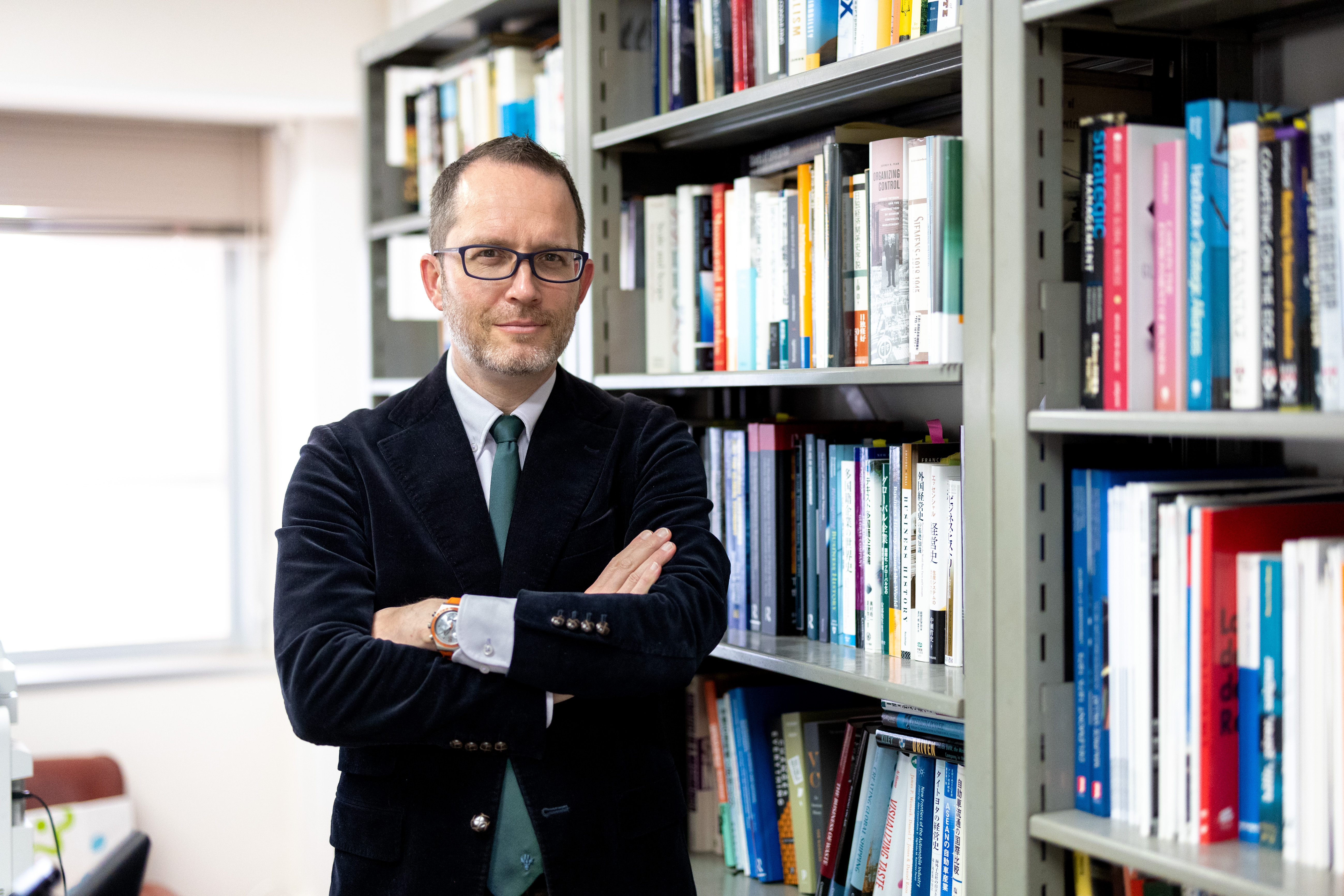
Professor Pierre-Yves Donzé, Graduate School of Economics
"All about adaptability: Studying how companies utilize their strengths to master new markets"
Dr. Pierre-Yves Donzé was born and raised in La Chaux-de-Fonds, a city in Switzerland located close to the French border. After obtaining his Ph.D. in history from the University of Neuchâtel, he came to Japan in 2006 and has been living and working here ever since. Dr. Donzé has worked as a researcher and professor at several prestigious universities in the Kansai area and has been a professor of business history at the Graduate School of Economics since 2016. In addition, he is also a visiting professor at the University of Fribourg, Switzerland. Dr. Donzé is a native speaker of French and has a full working knowledge of English and Japanese.
Dr. Donzé is an expert on the history and development of global competition in businesses, particularly those related to luxury goods and medical technology. He has been leading projects on the development and expansion of the watch industry over time and studies on the development of and technology transfer in the medical device industry. His approach to economic research as a historian has enabled him to make his studies accessible to many people, including non-economists, without compromising quality. Furthermore, by comparing what has happened in multiple countries, his studies have drawn interest from many in academia and the business sector both in Japan and abroad. Dr. Donzé belongs to several academic societies and has been serving as a council member of the European Business History Association since 2016. He has published many books and journal articles in major international journals in economy and history.

Recently, Dr. Donzé has been studying how a number of companies have successfully expanded their businesses to the medical device sector. Companies that are traditionally known as camera manufacturers have successfully used their knowledge and skills to develop high-precision medical devices that are in high demand in laboratories and clinics. In fact, one Japanese company has transformed so much so that its medical device business now contributes to the majority of its profits. He pointed out that the reason for this was that such companies had developed the right skills and corporate culture in precision engineering, similar to the meticulousness of Swiss luxury watchmakers, which are easily transferable to their medical device businesses.
In education, in addition to teaching a number of courses in the regular Japanese program, Dr. Donzé is also involved in the development and teaching of a new English-based graduate program at the Graduate School of Economics. He mentioned that there is a strong demand for high-quality international students at Osaka University, especially at the Graduate School of Economics, and the English-based program is an excellent way to welcome students from all around the world who do not have prior Japanese language skills to study and perform research here. He is confident that the new program will mature over time as more faculty members participate in it.
Being fluent in Japanese, Dr. Donzé feels that living in Japan, especially in Osaka, is very comfortable. He enjoys the safety and good food, as well as the openness and friendliness of the locals. As a Swiss, he shares similar values with the Japanese, such as a consensus-based society, something that he feels makes his life in Japan relatively stress-free. However, he also acknowledges that there exist some cultural differences between Europeans and Japanese. Other than being familiar with the language, the key to living happily in Japan, he says, is to understand such differences and be flexible enough to adapt to a certain degree.
Text: Clement Angkawidjaja/Edit: Christopher Bubb